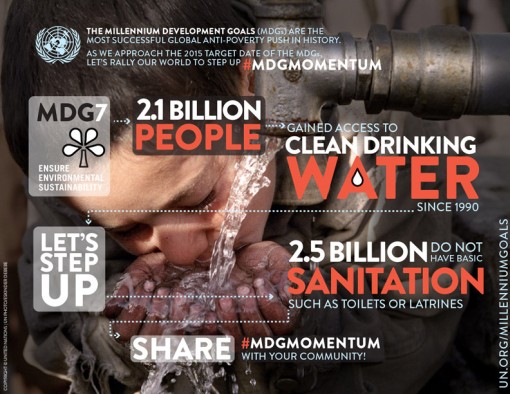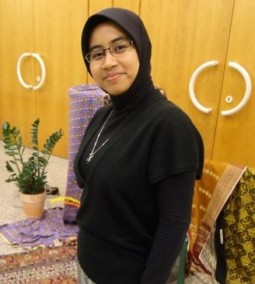The UN has adopted eight so-called Millennium Development Goals. Our new series From 1 to 8: How close are we to achieving the Millennium Goals? takes a look at what DAAD scholarship holders are doing to help meet them. With expertise gleaned from both professional experience and their studies in Germany, each of the scholarship holders talks about one goal in specific. Syahrina Anggraini and Déborah de Mendoça Lage both talk about the seventh Millennium Development Goal: Ensure Environmental Sustainability.
Deciding for less convenience
Syahrina Anggraini from Indonesia has been studying Environmental Governance at the University of Freiburg since August 2012. Before coming to Germany, she was a department head at an Indonesian company that writes studies on climate change and environmental protection and consults businesses and governments on these issues.
Millennium Express: What’s the seventh Millennium Development Goal all about, and what’s been achieved so far?
The seventh goal is about ensuring environmentally sustainable development around the world. Many of the sub-targets have been met already. There has been a 98% decrease in ozone-damaging substances, for example. There have also been marked improvements in the area of access to clean drinking water. But a staggering 11% of the world’s population still has no access to clean drinking water and sanitation facilities. So there’s plenty left to do.
Another pressing problem is the destruction of our forests through clear-cutting and excessive land use. In contrast to Europe and Asia, where trees are making a comeback, deforestation in Africa and Latin America continues to be problem. This is because in developing countries, environmental protection often takes back seat to economic interests.
Millennium Express: Is sustainability a real problem in developing countries?
I wouldn’t call sustainability a problem – “challenge” is a better word for it. Some developing countries are aware of their environmental responsibilities. But for others, sustainability is still a non-issue. The biggest challenge is finding a happy medium, one that balances a healthy, well-functioning economy– a very important aspect for developing nations with a concerted effort to preserve natural resources, such as oil and water.
Millennium Express: What can individuals do on the sustainability front?
It’s important that each and every one of us is aware of our actions. We can start by taking a harder look at consumption. There are so many environmentally friendly products in Germany– organic foods and fair trade coffee, for example. Travelling less is also a way to protect the environment– it produces less CO2. And we should think more about the environment and the people around us when we make choices and decisions, and not always choose what is most convenient for us personally.
Click here for the interview with Débora de Mendonça.
For more information about the 7th Millennium Development Goal, click here.







